In the pursuit to push our bodies, we are always looking for ways to improve our physical fitness and maximize our efforts during workouts.
Whether going to yoga or CrossFit or a long bike ride, we want to increase our energy, enhance our muscle gains, and boost our endurance.
In response to these desires, consuming pre-work supplements has become an increasingly popular way to push our bodies’ limits during exercise.
However, the rising popularity of pre-workout supplements comes with a rise in misinformation, confusion, and marketing campaigns.
While the desire to push our bodies is everlasting, making decisions about supplements in a sea of pre-workout options can be overwhelming.
How can you ever know what pre-workout supplement to try or use?
The key to becoming well-versed in pre-workout supplements is learning how these supplements work, knowing how your body functions, and mapping out your fitness goals.
Fortunately, this definitive guide will help you understand how pre-workout supplements work so you can make them work for you!
What are Pre-Workout Supplements?
Pre-workout supplements are tablets or water-soluble powders specially formulated to increase performance during exercise or workouts.
Many of these supplements strive to improve physical endurance, build muscle quicker, and increase energy.
When consumed, pre-workout supplements should help you push your body harder by keeping you focused and by keeping your energy levels up.
This means you will work harder for more extended periods, which will lead to better physical results in a shorter amount of time.
If these help you work out harder and longer, what exactly are they doing to your body?
How Do Pre-Workout Supplements Work?
All supplements contain at least one active ingredient, but most usually have a combination of the following active ingredients: creatine, caffeine, beta-alanine, amino acids, and nitric oxide agents.
These ingredients target the body in specific ways to improve physical performance.
While thinking about how these chemicals affect the body, it is just as essential to think about the dosages that are safe for our bodies.
Related: Top 10 Best Pre-workout Supplements for 2019
Caffeine
Many of us are aware of this word, but we don’t understand exactly how caffeine works with the body. Caffeine binds to and interacts with the adenosine receptor in the brain. Adenosine controls our wakefulness.
The more awake you feel, the more adenosine you have in your body.

Caffeine binds to the adenosine receptors, causing neural activity in the brain to speed up while simultaneously causing an increase in adrenaline production.
In pre-workout supplements, caffeine aims to improve cognition and performance during endurance, power, and resistance exercises by increasing neural activity and adrenaline.
As noted in the Journal of the International Society of Sports Nutrition (2018), “formulations that contain at least 300mg caffeine per serving will fall within the acceptable dosing range for most individuals.” You may follow the ratio of 3-6 milligrams per kilogram in bodyweight.
[Example: 68 kilograms (150 lbs.) x 4.5 mg = 306 mg of caffeine].Nitric Oxide Agents
Nitric oxide is a molecule that helps increase blood flow to the muscles by calming arteries. A few nitric oxides include L-Arginine and L-Citrulline. L-citrulline is an amino acid found in watermelons.
When L’Citrulline combines with malates, studies (2012) have shown that the combination results in dilating blood vessels and increased flow of blood throughout the body. Effectiveness of nitric oxide seems to peak when consuming 6-8 grams per day.
Creatine
Creatine is an amino acid found primarily in the body’s muscles as well as the brain. It mainly serves as the means of energy for muscle movement. When 3-5 grams are consumed daily, creatine has been shown to help high-intensity workouts and build muscle.

Beta-alanine
Beta-alanine (β-alanine) is an amino acid used to minimize the buildup of lactic acid in muscles during exercise. Beta-alanine in supplements is used to increase endurance so that you may exercise for more extended periods or increase your repetitions.
Recommended doses are between 2-6 grams, depending on your body type.
Red Flags When Looking at Supplements
All pre-workout supplements you use should have a clear list of ingredients with specific measurements next to them (grams, milligrams, etc.). If there is not a clear list of ingredients and their respective measures, then you should STAY AWAY!
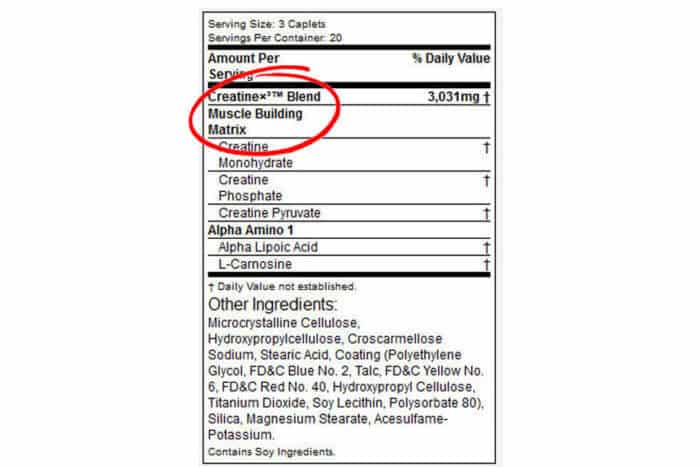
One phrase to watch out for is “proprietary blends.” Manufacturers use this phrase as a way to hide the specific kinds of ingredients they put in the product, as well as the amount. More often than not, the blends have fillers to replace active ingredients.
In “proprietary blends,” you can never be sure as to the amount of active ingredient in the product. There may not be enough amino acid or creatine, or there may be too much. In the same vein, you may not even know the primary active ingredient in the product.
While the “proprietary blends” try to scam you, they simultaneously make it hard for scientists to run proper studies. You cannot run an experiment if you do not know the measurements of the ingredients you use.
If scientists cannot even use it, then why should you?
Are Pre-Workout Supplements Considered Drugs?
It is good to know what is in your pre-workout supplements to help answer this question. While this question may have been more controversial in 2014, the regulations on pre-workout supplements in the United States are stricter.
In 2014, The FDA published a letter recalling a pre-workout supplement that contained chemicals related to methamphetamines.
As previously mentioned, a clear red flag is the proprietary blend label, as these can contain any substance. There are a few labels to watch out for. If you see labels with these ingredients, you should not purchase them, as they are not FDA approved.
- B-Phenylethylamine,
- N,N-Diethyl-B-Phenylethylamine (Dendrobex)
- N,α-diethylphenylethylamine (N, α-DEPEA)
The following alkaloid stimulants should be considered carefully:
- Dendrobine
- Dendroxine
- Dendramine
It is crucial that you know what is in your pre-workout supplements and understand how the chemicals work.
When Should I Consume Pre-Workout Supplements?
It takes time for the body to absorb chemicals. This means you need to carefully plan when to take pre-workout supplements by knowing when you are going to work out and how long.
Some chemicals take longer to absorb into the body than others, so knowing these absorption times can be helpful.
- Caffeine takes 45 minutes to be absorbed, and its effectiveness peaks within 60 minutes of consumption.
- You should consume caffeine-based pre-workout supplements 40-45 minutes before your workout so that the peak occurs during your exercise.
- Creatine takes one hour to be absorbed by the body, but this has little relevance to its effectiveness.
- Creatine does not work well with caffeine and should not be taken with caffeinated supplements or caffeinated drinks.
- Creatine works well with carbohydrates. See best creatine supplements here.
- Creatine taken after workouts has been proven to have more effects than pre-workout consumption.
- Beta-Alanine takes around 45 minutes to be absorbed, and its effectiveness lasts between 1-2 hours.
- You should consume beta-alanine supplements 45 minutes before your workout.
- Absorption occurs more effectively when taken with a carbohydrate.
- Mixed blends (clearly labeled) are usually taken 30-40 minutes before a workout
- If you know the main active ingredient (caffeine, creatine, etc.), then use the ingredient’s absorption rate to plan when to take your supplement.
A chart is provided below in case you need a quick reference before your next workout!
| Substance | Absorption Time | Do | Don’t | When to Consume |
|---|---|---|---|---|
| Caffeine | (Absorbed) 45 mins. (Peak) 60 mins. | Plan for the peak to occur during your workout | 40-45 minutes before workout | |
| Creatine | 60 mins. | Take with carbohydrates | Take with caffeine | Proven most effective when taken after workouts |
| Beta-alanine | 45 mins. | Take with carbohydrates | Take 45 minutes before workout, and/or three times a day | |
| Blend | Depends on the active ingredients | Look at the active ingredient with the largest measurement | Typically, 30-60 minutes before workout |
What are the Benefits of Taking Pre-Workout Supplements?
Do pre-workout supplements make you stronger? Do they help you lose weight? Will taking pre-workout supplements help me burn fat?
Many misconceptions are surrounding the benefits of pre-workout supplements. Many individuals think that supplements boost the metabolism and increase muscle power.
While the results may make you think that, something else is happening.
Pre-workout supplements are primarily designed to help with focus and endurance during workouts. Therefore, you can work out for more extended periods and at a higher intensity.
The increased intensity and workout time means you are spending more time exercising. Exercising more leads to the following gains:
- Increased repetitions
- Improved muscular endurance
- Increased exercise performance
- Increased metabolism
- Enhanced muscle protein synthesis
- Improved cognition
- Enhanced resistance exercise
- Improved intensity during exercise
- Reduction of protein breakdown
- Reduction of muscle damage during exercise
- Reduction in fatigue

Supplements have also been shown to influence mood positively. As you work out, you are happier and have more positive thoughts, which in turn makes you work harder and feel better about exercise.
If you feel good about exercising, you are more likely to do it again.
An important note is that pre-workout supplements aim to provide the benefits listed above. Creatine-based supplements are designed for those who want to build muscle.
Other pre-workout supplements are shown to more likely assist in the development of lean mass.
The supplements themselves are mostly giving you more energy to exercise longer, which burns fat, and to work harder, which will help you increase those repetitions.
Related: Top 10 Best Pre-workout Supplements for 2019
How Long Does the Pre-Workout Supplement Last?
The lasting effects of your supplement depend on your body and the supplement(s) you take. Some chemicals pass through your body quicker than others, and the results additionally depend on your age and metabolic rates.
Most pre-workout supplements are designed to last 2-5 hours. The effects steadily decline as the hour’s pass.
If you have a fast metabolism, the numbers may be reduced. If you are sensitive to stimulants, then these numbers could double, meaning the effects last longer.
The best way to know the lasting effects of supplements is to know your body and how it reacts to certain chemicals.
Will Taking Pre-Workout Supplements Affect My Sleep?
Just as you need to plan your supplements to be useful when working out, you also need to consider the impacts lasting beyond your workout session.
If the impacts last beyond your workout and near your bedtime, the supplement may affect your ability to sleep.
If you work out at night, before you sleep, you may want to consider a pre-workout supplement without a stimulant.
Caffeine-free supplements will help avoid sleepless or restless nights, because the effects of caffeine may not wear off by the time you lie down to sleep. Other side effects could have an impact on your ability to sleep, as well.
You may want to consider moving your workout routine a few hours earlier or exercising in the morning. This way, you will not have to worry about the supplement hindering your ability to sleep, and you will be awake for the day.
What are the Negative Side Effects of Taking Pre-Workout Supplements?
Just like any other consumable product, there can be negative side-effects. From 2004-2013, there were an estimated 23,000 hospitalizations related to the adverse effects of supplemental use with supervision as well as use without supervision.
The stimulation induced by pre-workout supplements can cause heart palpitations, chest pain, and abnormal or rapid heart rates (tachycardia). Pre-workout may cause other irregularities in the heart, such as skipping heartbeats.
Another side effect that may go unnoticed for some time is unhealthy weight loss. While pre-workout users may be working out for longer periods, the increase of exercise could cause quick losses in weight.
This is unhealthy for the body, and users should carefully track their weight losses and muscle gains.
When taking supplements, carefully track your urinary tract, as some supplements may affect the kidneys. If you notice any change in urine, then stop taking the supplements and immediately and seek medical attention.
Other effects should be monitored when taking pre-workout supplements:
- Headaches
- Cramps
- Jitters
- Anxiety
- Allergic reactions (hives, rashes, etc.)
- Itching
- Flushed Skin
- Nausea
- Diarrhea
It is best to talk to your medical professional about pre-workout supplements and what is right for your body, your health, and your physical goals.

You should always track any side-effects you experience when consuming any new supplement. If a supplement works for you, also be sure to notice any changes or reactions your body may have later.
Should You Be Cycling Your Pre-Workout Supplement?
In economics, the law of diminishing marginal utility says that the pleasure we receive from every unit consumed declines.
To put this in regular terms, if you eat a sandwich every day, then the pleasure you receive from eating a sandwich will continually decrease.
The same idea can be applied to our body’s response to caffeine. Each day you drink a cup of coffee, your body begins to respond less to the caffeine you consume.
When this happens, you might think that you have to consume a second cup of coffee to feel its caffeinated effects.
If we apply the idea to pre-workout supplements, then it makes perfect sense that these supplements should be used in cycles. However, not all supplements or chemicals need to be cycled.
Mixed blends and stimulant-based supplements should be cycled.
A good rule of thumb is to use your pre-workout supplement 6-8 weeks and then go off of it for 2-3 weeks. It is best not to use any supplement during these few weeks.
If you find yourself struggling during your off-cycle time, you can use pre-workout supplements that are free of stimulants to help get you through.
Once the 2-3 weeks have finished, you can return to taking a stimulant-based pre-workout supplement.
Making Decisions about Your Body
Pre-workout supplements are not designed to be an easy fix or act as a dietary supplement. Instead, they act as a stimulant, like any form of caffeine, to keep your energy levels up and increase your focus.
By increasing focus and energy, you will have more endurance to work your body longer.
You need to be aware of the chemicals you are putting in your body and how the chemicals interact with it. You may find that taking individual supplements will allow you to focus on specific physical goals.
Picking and choosing special supplements forces you to demonstrate a deeper understanding of your body’s functions and your own fitness goals.
Continuously track the effects the supplements have on your body, both positive and negative. Be aware of any severe side effects and stop taking the supplements if you experience severe reactions. When in doubt, seek medical advice.
The final step in understanding supplements and fitness is understanding why you want to reach the fitness goals you set for yourself. Why do you want to make a physical change? Is it a positive reason? Is it for yourself? Do you need to make any lifestyle changes to help you reach that goal?

Know that supplements are not a simple solution. Fitness requires dedication, hard work, balanced eating, and achievable goals. Your goals should help lead you to an overall healthy and happy lifestyle and obtain the ideal physique you always want!
FAQs
What ingredient in pre-workout supplements makes you itchy?
Great question! Beta-alanine is the cause of that pesky itch when you’re taking a pre-workout supplement. Some users refer to it as the “beta itch,” the “alanine itch,” or the “b-itch.”
Scientists have been studying this and find that the body has to experience a histamine response. The histamine response is the same kind of itch you experience with an allergic reaction.
Do pre-workout supplements make you gain weight?
This answer here really depends on the ingredients in your pre-workout. Creatine is designed to help you gain muscle mass, which will make you heavier. Other supplements without creatine are more likely to help you gain lean muscle.
Remember that muscle weighs more than fat: if you are gaining muscle, then you will see an increase in weight.
Also, consider that all bodies react differently to chemicals. It is ideal for tracking your body’s response to a supplement. Your body could react to a chemical by retaining weight.
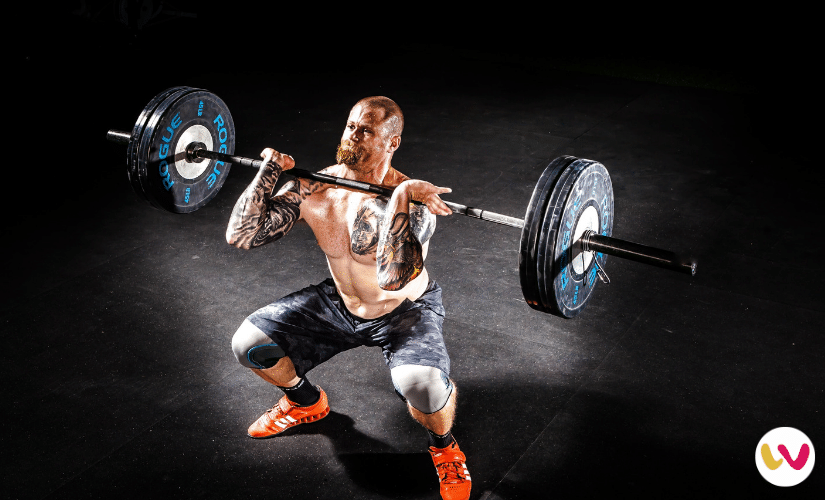
Is it okay to take pre-workout supplements on an empty stomach?
There have been no proven adverse side effects of taking pre-workout supplements on an empty stomach. The decision here is up to your preferences and knowing how your body reacts to supplements and workouts.
Many supplement users find that it takes longer for supplements to absorb and become active when they take supplements with food. However, some users find that carbohydrate or a light snack helps improve workout performance.
Are pre-workout supplements bad for your kidneys?
This is a question where we need to know how some of the ingredients interact biologically.
Caffeine and creatine are considered diuretics. They both cause you to urinate more often, and they cause water retention in muscles. When taking either of these, the body becomes dehydrated.
Creatine in large doses can minimize the kidney’s ability to work efficiently. The creatine, in extreme cases, can lead to kidney diseases or complications.
Taking large doses of creatine for longer periods can trick your body into stopping the production of creatine for itself.
I used a pre-workout supplement, but I didn’t feel any effect? What is happening?
There could be several causes here. Depending on how fast your metabolism is, you may be processing the pre-workout supplement too quickly and not feeling the effect. You could also be taking too little supplement to feel its full effect.
If you are taking a caffeine-based pre-workout, then it is possible that you are becoming tolerant to the caffeine. Do you consume other forms of caffeine during the day?
Perhaps you have taken a pre-workout supplement that does not have a stimulant. Always check your labels!
Another possibility is that you ate beforehand. If you ate food with your supplement, or close to when you took your supplement, the nourishment your body is digesting may interfere with the pre-workout.
Are pre-workout supplements worth the money?
The answer here is up to you, your preferences, your experiences, and your goals. Some individuals only see results when they take pre-workout supplements, but some find that pre-workout does not work well with their bodies or fitness goals.
The best way to decide if supplements are worth your money is to do your research and decide if what you find aligns with your goals and beliefs.
Related: Top 10 Best Pre-workout Supplements for 2019
Can I take pre-workout supplements at night?
Do so at your own risk! The stimulants in pre-workout may last beyond your workout. For those who sleep after a workout, you may find that the pre-workout affects your ability to fall asleep.
What is the ingredient that keeps me focused on pre-workout supplements?
It is most likely caffeine.
Can I drink protein shakes and still use pre-workout supplements?
Absolutely! Protein shakes will not counteract your pre-workout supplement.
Should I take a pre-workout supplement on days I don’t work out?
Probably not. Pre-workout supplements prepare your body to work out. It wouldn’t make too much sense to take a supplement when you aren’t going to work your body.
How should I start taking it?
Start by listing out your goals and what you want from your workouts. Once you have set your goals, DO YOUR RESEARCH! The definitive guide we have given should help you research what supplements may work for you.
All bodies are different. Therefore it is a good idea to talk to your health professional about your fitness plan to make sure it is a healthy plan for your body.
After deciding on the supplement(s) you want, make sure to READ THE LABELS! Understand thoroughly what is in your supplement and how it is supposed to work with your body.
- Read: 4 Gauge Pre-workout Supplement Review
- Read: Hunter Burn Premium Fat Burner Review – Does It Work?
- Read: Should You Take Pre-Workout For Cardio Training?



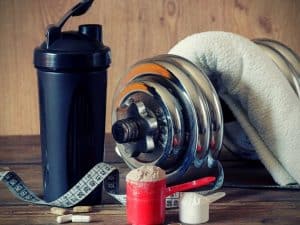
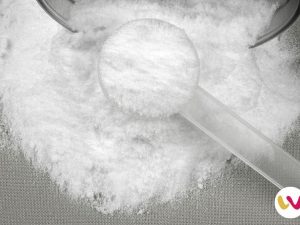
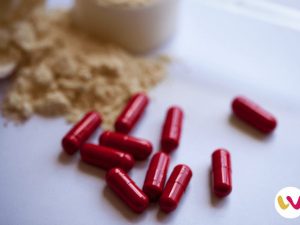
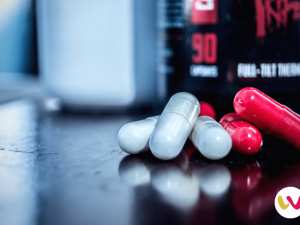


Add Comment